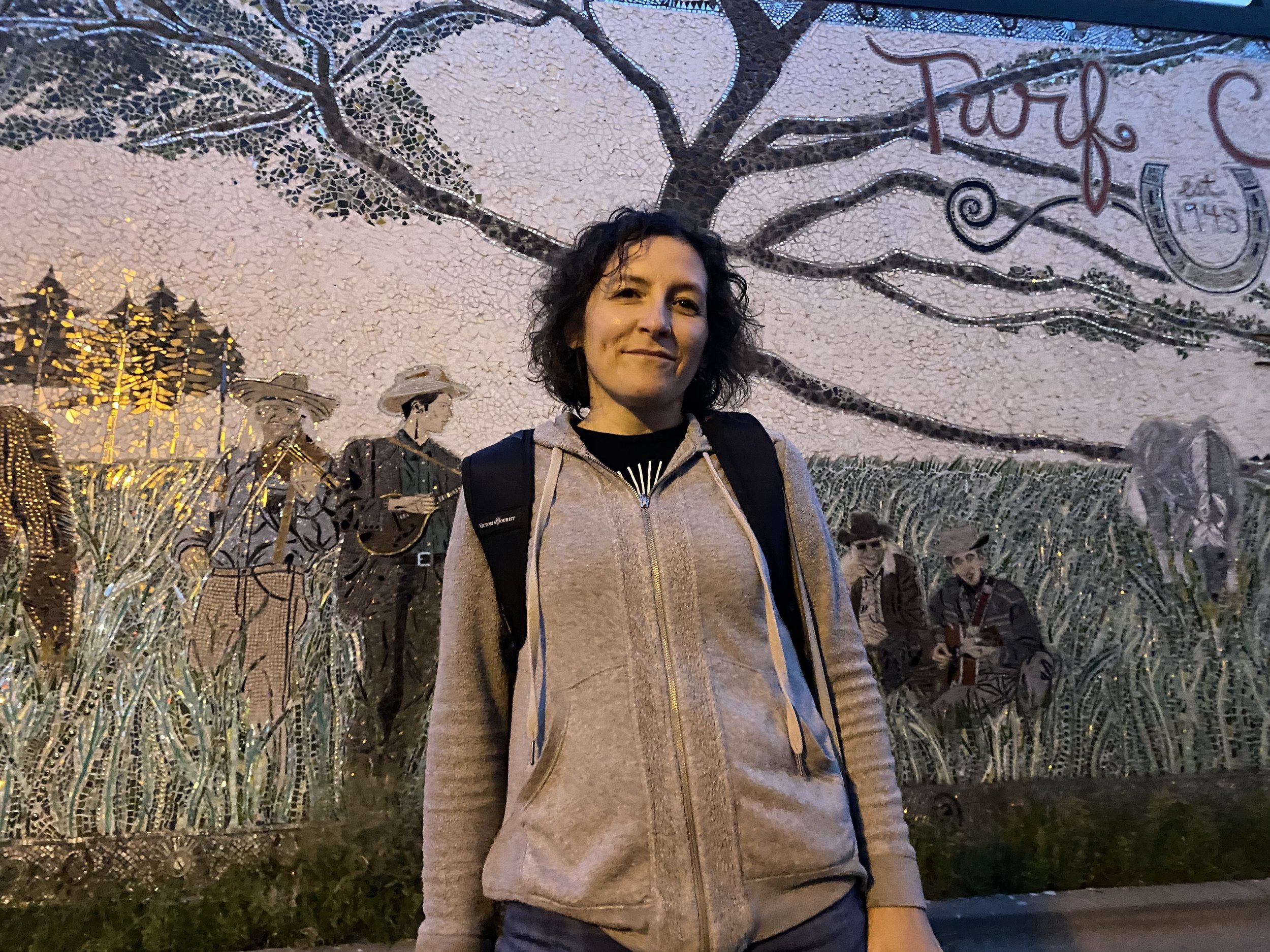Music Review: Logan Halstead, ‘Dark Black Coal’
The young singer-songwriter’s eagerly anticipated debut album is a stripped-down, dark black masterpiece.
Sometimes, music’s pull is so immediate and emotional, my biggest challenge is stepping back and trying to pick apart my reaction, to identify and describe its source.
I know I wasn’t the only one floored by the live performance video from RadioWV of then-17-year-old Logan Halstead singing his original “Dark Black Coal.” In fact, I’m one of 6 million such people, judging from the YouTube views it’s racked up since its December 2020 release. It’s no surprise it became the title track of his debut album.
The song, about the hardships of working in the coal industry, had a personal draw for me; my brother-in-law Terry is a West Virginia coal miner, and the lines “You wake up in the morning grab your hard hat / Pray that you make it back home” brought me back to the time I visited my family shortly after the 2006 Sago Mine disaster (where 12 miners succumbed to carbon monoxide poison after being trapped by an explosion), being taken to the site of it and fully realizing just how dangerous Terry’s job really is.
Even without that personal connection, I think I would’ve been bowled over by Halstead’s arresting performance. There’s an unmistakable thrill when you encounter someone so early in their career and can hear not only the present talent but also the latent potential brimming underneath the voice and songwriting. His voice has a new and unpolished feel which only serves to underscore his raw magnetism and innate gifts.
It’s the perfect vehicle for his words as well, blunt and unvarnished but with a naturally poetic bent. There’s something honest, open and observant about Halstead’s songwriting and the way he delivers those lyrics; this is someone who sees the world for what it is, good and bad, and expresses that perception directly through song.
In addition to the title track, Halstead has another song about the industry that plays up how coal mines are both a curse and a lifeline in rural West Virginia; they wreck lives, bodies and the land, but things can get even worse when the jobs dry up:
Coal River won't you wash my bones away
I'm slaving for the company and I can't get any pay
Well mining coal ain't a way to make a life
And I can't feed the hunger of three kids and a wife
Now the hollers are empty
And the company's left town
And there ain't no more mountains
For Coal River to bend around
It’s not all work and no play on this album; two livelier tracks could be considered party songs, though the rowdy behavior depicted is self-destructive and the ultimate picture is bleak. “Good Ol’ Boys With Bad Names” vividly conveys both the excitement and danger of drug-fueled partying:
Meet me out at midnight
Put that fire to my pipe
Hits my lungs like a blast from a gun
And keeps me up for days
My heart gets to racing
My hands get to shaking
“Man’s Gotta Eat” is a bouncy fiddle-driven song about doing whatever it takes to get by: selling food stamps, stealing copper wire, “living on pills and welfare.” Although it’s sung with a wink, the lyrics contain plenty of gut punches:
Got a few friends that made it
Most left behind
Crushed down in the coal mines
Or OD’ed down the line
Halstead includes two covers on Dark Black Coal: Richard Thompson’s often-covered “1952 Vincent Black Lightning” and Cole Chaney’s “The Flood.” While it’s a pleasure to hear him apply his voice to others’ stories that tell of hard times and bad living—fitting in well with his own tales—I’m here for his originals.
Two tracks capture despair using traditional country themes applied to modern problems. “Far From Here” applies the classic train-of-death metaphor to someone trying to drown depression with pills:
Well I know I ain’t bound for glory
So I’m off to hell it seems
I can hear that train a-coming
I can hear the engine scream
“Uneven Ground” is also about using drugs and alcohol to try and escape. My favorite lines, sung by Arlo McKinley in a stunning vocal cameo, bring to unsettling life the singularly isolating dread caused by insomnia:
Lying in bed, thoughts of my death they consume me
Time that is left, fearing what’s next for my soul
Nights last so long, sad lonesome song I’ve become
Written in words that I’ve seldom heard
Like they’re spoken, like they’re singing in tongues
Rest assured not all the songs on Dark Black Coal are this bleak. “Mountain Queen” is a love song to West Virginia that, as Halstead has noted, can work equally well as an ode to a lover: “Sun’s shining on her sweet face / And my heart’s aching when she’s away.” Halstead grew up in West Virginia but born in Kentucky, and both states seem to have staked a claim in his heart. “Kentucky Sky” combines idyllic natural imagery (“A redbird sits on a fence post / Such beauty from a creature so small”) with romantic declarations for a girl.
A departure from his more plain-spoken tracks, “Bluefoot” (which Halstead describes as his “feel good song”) plays with impressionistic lyricism. You don’t need to have laid out under a West Virginia sky brimming with stars and meteorites to enjoy this song but it sure doesn’t hurt. This song describes the joy, in alternating verses, of being out in nature (“I can feel the stars flying past my face and I taste raindrops dropping on the trees”) and of being on stage (“I taste moonlight racing to the ground darkness drowning out the sound of a six-string ringing”).
Halstead’s songwriting is young and nascent, but minimal instrumentation (just guitar, bass, fiddle and occasional mandolin) puts his lyrics and melodies front and center, delivered fearlessly by his captivating, still developing voice. What he’s already managed to achieve at this early stage of his career is exquisite. It’s thrilling to speculate where he’ll take his considerable skills next, but Dark Black Coal is a pleasure in and of itself.
Carol Roth is a full-time marketing copywriter and the primary music journalist and social media publicist for Adventures in Americana. In addition to studying the guitar and songwriting, Carol’s additional creative side hustle is writing self-proclaimed “trashy” novels under the pseudonym T.A. Berkeley!


